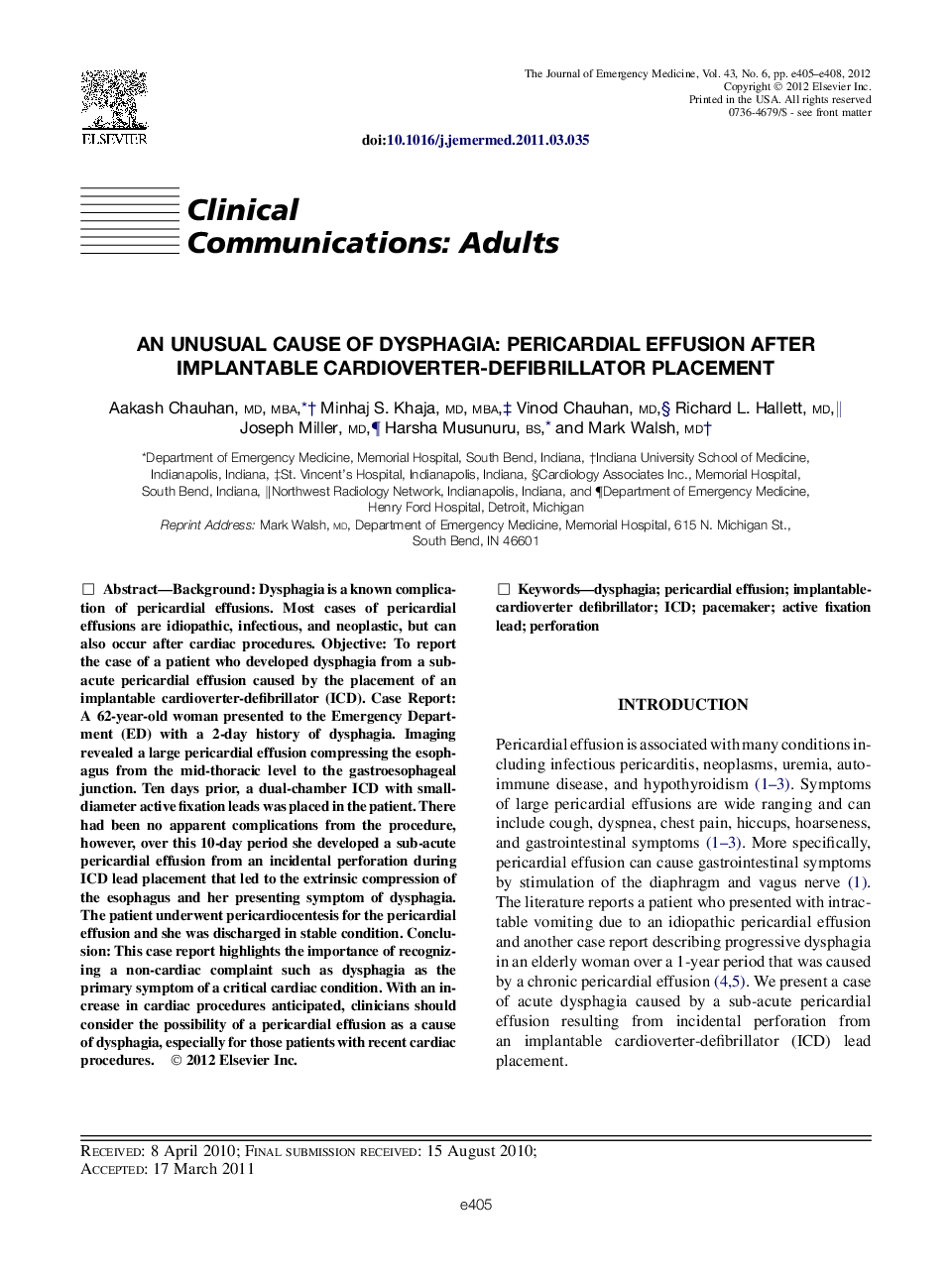| Article ID | Journal | Published Year | Pages | File Type |
|---|---|---|---|---|
| 3246838 | The Journal of Emergency Medicine | 2012 | 4 Pages |
BackgroundDysphagia is a known complication of pericardial effusions. Most cases of pericardial effusions are idiopathic, infectious, and neoplastic, but can also occur after cardiac procedures.ObjectiveTo report the case of a patient who developed dysphagia from a sub-acute pericardial effusion caused by the placement of an implantable cardioverter-defibrillator (ICD).Case ReportA 62-year-old woman presented to the Emergency Department (ED) with a 2-day history of dysphagia. Imaging revealed a large pericardial effusion compressing the esophagus from the mid-thoracic level to the gastroesophageal junction. Ten days prior, a dual-chamber ICD with small-diameter active fixation leads was placed in the patient. There had been no apparent complications from the procedure, however, over this 10-day period she developed a sub-acute pericardial effusion from an incidental perforation during ICD lead placement that led to the extrinsic compression of the esophagus and her presenting symptom of dysphagia. The patient underwent pericardiocentesis for the pericardial effusion and she was discharged in stable condition.ConclusionThis case report highlights the importance of recognizing a non-cardiac complaint such as dysphagia as the primary symptom of a critical cardiac condition. With an increase in cardiac procedures anticipated, clinicians should consider the possibility of a pericardial effusion as a cause of dysphagia, especially for those patients with recent cardiac procedures.
